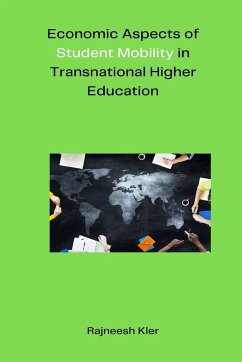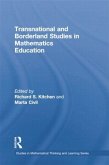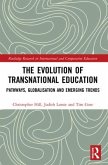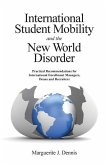Economic Aspects of Student Mobility in Transnational Higher Education The phenomenon of student mobility in transnational higher education has gained significant attention due to its economic implications. As more students pursue educational opportunities across borders, the economic aspects associated with this global flow of students have become increasingly important to understand and analyze. One key economic aspect is the substantial revenue generated by transnational higher education. Hosting countries benefit from the influx of international students who contribute to the local economy through tuition fees, accommodation expenses, and daily living expenditures. This injection of foreign funds can stimulate economic growth, create employment opportunities, and enhance the competitiveness of the education sector in the host country. Likewise, sending countries can also experience economic benefits from student mobility. When students pursue education abroad and subsequently return to their home countries, they bring back valuable knowledge, skills, and networks acquired during their international education. This brain gain can contribute to the economic development and innovation capacity of the sending country, as these highly educated individuals contribute to their local workforce and drive entrepreneurship and research initiatives. In addition to direct economic impacts, student mobility in transnational higher education can foster cultural and knowledge exchange. This cross-pollination of ideas, perspectives, and experiences can lead to the development of a globally competent workforce and enhance the overall competitiveness of both hosting and sending countries. Furthermore, international collaboration between universities can result in joint research projects, academic partnerships, and technology transfer, creating a mutually beneficial environment for innovation and knowledge dissemination. However, it is important to recognize the potential challenges and risks associated with the economic aspects of student mobility. Issues such as brain drain, where highly skilled individuals choose to remain in the host country rather than returning to their home country, can negatively impact the sending country's economic development. Moreover, the economic sustainability of transnational education programs relies on maintaining a delicate balance between the quality of education provided and the affordability for students, ensuring accessibility for a diverse range of learners. In conclusion, the economic aspects of student mobility in transnational higher education encompass a range of benefits and challenges. The revenue generated, knowledge exchange, and cultural enrichment contribute to the economic growth and development of both hosting and sending countries. However, careful consideration must be given to issues of brain drain and accessibility to ensure a sustainable and inclusive approach to transnational higher education that maximizes its positive economic impacts.








